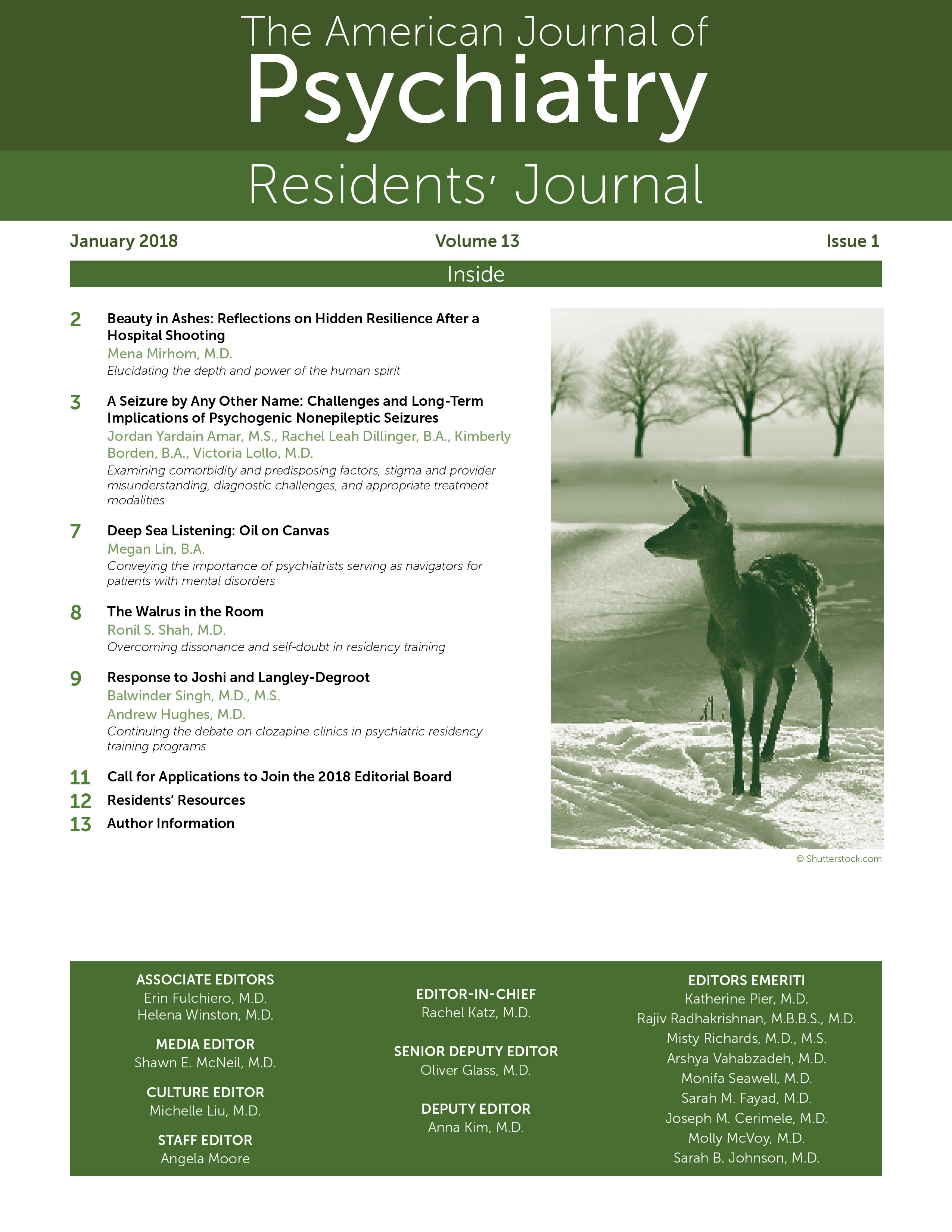I entered the room, and a steely walrus moustache flopped up to greet me, followed by weary sky-blue eyes and a half-hearted wave from a hefty club, thickly wrapped with overlapping layers of crisscrossing bandages. "Mr. J" had been transferred from the psychiatry consultation service to the inpatient psychiatry floor, and I, one month into residency, was to direct his care. A glimpse into his chart: a late-thirties male, addled by diversified substance abuse, who had "sampled" methamphetamine, and at the end of the trial period found himself waking with deep gashes to his wrists and neck in the sterile glow of the surgical intensive care unit.
To the consult service, he spoke of jumping between alternate realities, interspecies soul swapping, and scaly saurian aliens. By my evaluation, the drug-induced creativity had subsided, and he joked with me about his inability to wipe himself (
1). I pitied him, with his arms immobilized distally from his elbows, helpless, and riddled with shooting, fiery nerve pain. On intake, I continued his pain regimen, but over time, with his psychosis clearing and his injuries presumably healing—and in keeping with the literature guidelines—I weaned his oxycodone from the original immediate postop regimen (
2).
At first, he demurred with, "If you say so, doc." This progressed to, "I really don't think this is an appropriate regimen, sir." Then it intensified to, "My pain is not under control, man." And ultimately it mushroomed to, "Stated goals for shift: not to hate Dr. Shah." I did not believe that I was neglecting his pain, as every nursing note described the patient laughing with peers, sitting quietly coloring, and sleeping soundlessly through the night. I badgered my attending every evening as I painstakingly double-checked the plan to make sure that it was medically appropriate.
As the intervals between his scheduled oxycodone doses increased, the length of our conversations shortened, with my demeanor becoming increasingly formal. Eventually, my empathy withered to where my gut lurched at having to visit with him at all. What was wrong with me? Had I tarnished those sacred maxims of beneficence, autonomy, and nonmaleficence? Would my program director ask the National Residency Match Program if there was a 90-day return policy? I followed the guidelines, and objective findings and more experienced providers supported my plan, and the patient's history of drug abuse was well documented. But I was still haunted for months, long after he was discharged. Ultimately, I decided that doing "right" will often clash with patients' wishes, creating that all-too-familiar wrenching dissonance and self-doubt. However, learning to stomach that nausea, I imagine, is one of the seminal lessons of the intern year, and coming to peace with just feeling "bad" is good practice for many more patient encounters—odobene-lipped or not—to come.
Acknowledgments
The author thanks Drs. Melanie Rylander and Matthew Deliere for their guidance during the treatment of the patient who inspired this piece.
